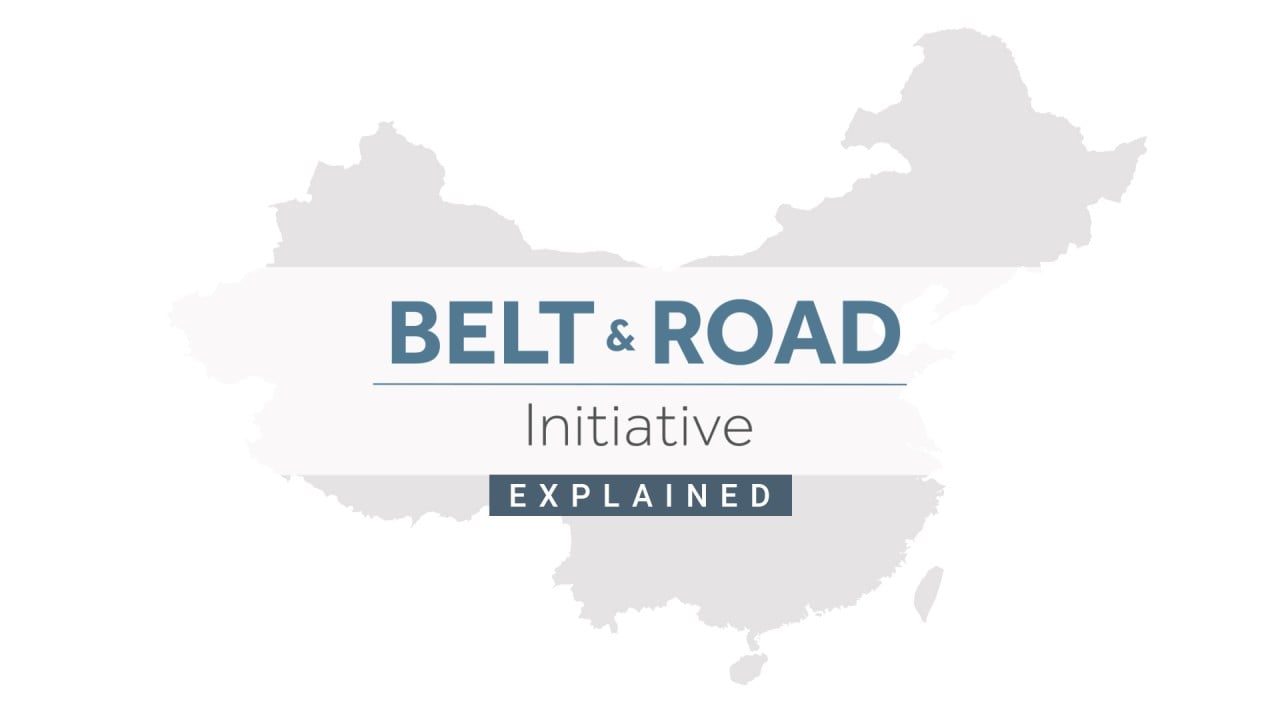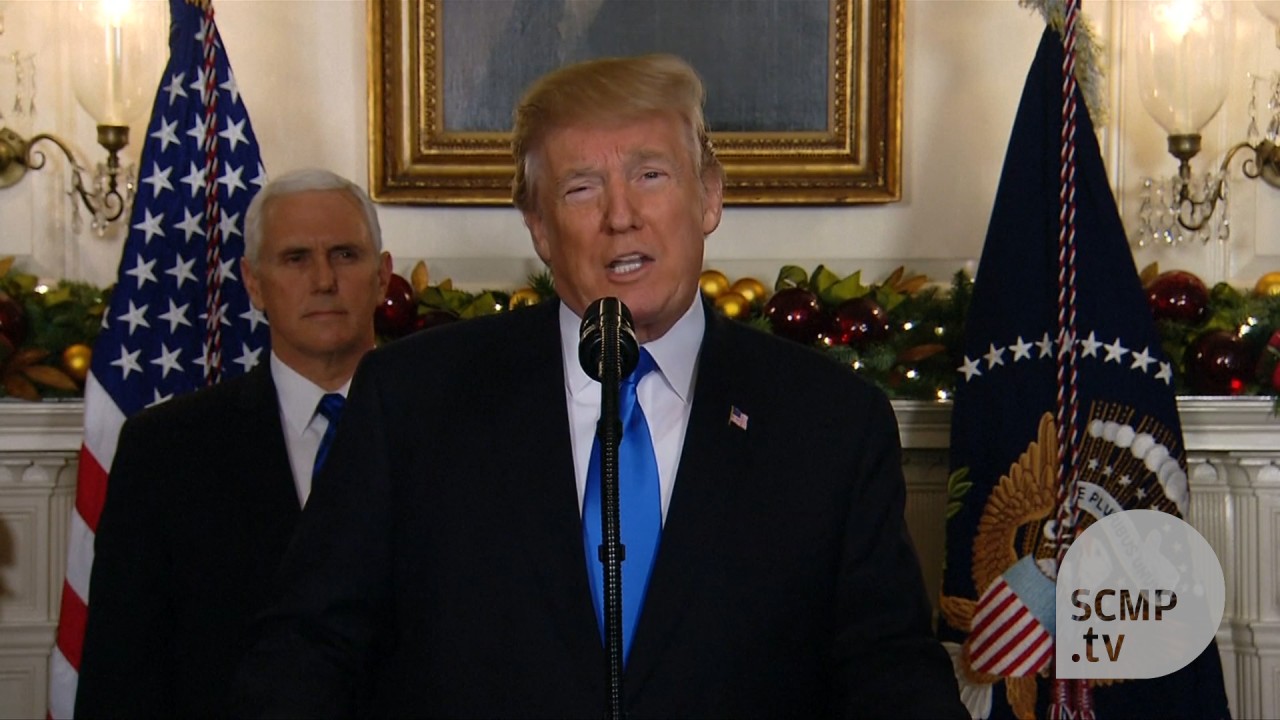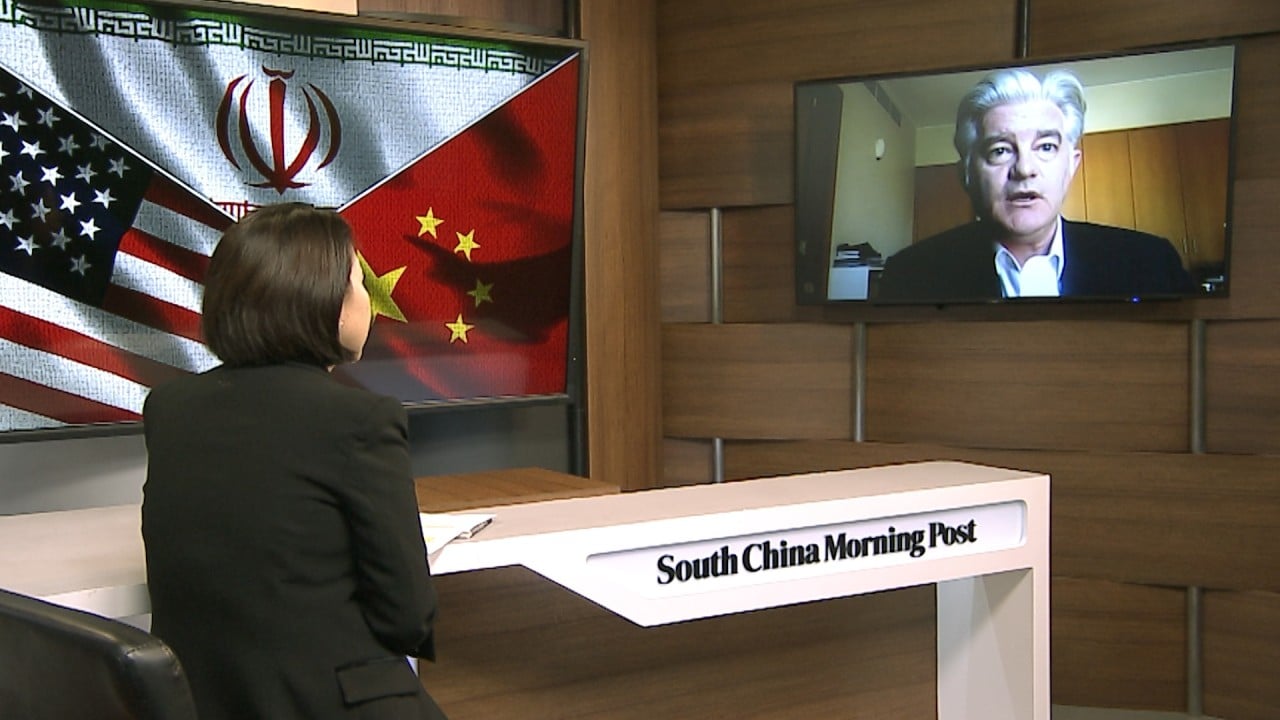
US-China relations: Middle East countries under pressure to take sides against Beijing: former Chinese envoy
- Former Chinese ambassador to the region says UAE-Israel agreement part of bigger American bid to isolate Iran
- US also expected to try to exclude Chinese players from reconstruction of Iraq and Syria, he says
US allies in the Middle East are coming under growing pressure to pick sides against China, posing a challenge to Beijing’s plans for a bigger economic foothold in the region, according to a former senior Chinese diplomat.
Last week, the UAE became the third Arab state after Egypt and Jordan to recognise Israel, in return for Israel agreeing to suspend a controversial annexation plan of the occupied West Bank.
Hua, who was also China’s ambassador to the UAE from 1995-1998, said the deal was only one step in the US’ wider Middle East plan.
“What would come next could be the US continues to broker peace deals between Arab states and Israel so as to downplay the Palestine issue but to unite Arab states to suppress Iran,” Hua said.

02:35
Belt and Road Initiative explained
He said China welcomed last week’s agreement, saying it was in China’s interests to have a stable and peaceful region.
The Middle East accounts for 60 per cent of China’s oil imports and Hua said the strategic passage from the Persian Gulf to the Strait of Malacca was “a matter of life and death” for the country.
Iran and Turkey slam Israel-UAE deal as ‘strategic stupidity’
But Hua said tensions between China and the US would undermine the plan, with the United States “pressuring Middle East allies to stay away from China”.
“Its allies globally are facing the difficulty of [having to] pick a side between Washington and Beijing. It could be a headache for the region which is in dire financial need,” he said.
The pressure was evident in May when US Secretary of State Mike Pompeo visited Israel and cautioned against stronger ties with China.

00:24
Trump recognises Jerusalem as capital of Israel
During the trip, Pompeo voiced opposition to Chinese involvement in construction of the world’s biggest desalination plant in Israel.
Hua said the US was also expected to put pressure on its regional allies to undermine Chinese efforts to take part in the rebuilding of Iraq and Syria.
Chinese observers sceptical over Trump foreign policy gambits
“[But] China will ... continue to develop relationships with Middle East countries, including Iran,” Hua said.
The sanctions had been lifted under the 2015 nuclear agreement, but Washington accused Tehran of non-compliance with the landmark deal which the US pulled out of two years ago.

05:06
US-Iran tension: Where does China stand?
A spokesman for China’s mission to the UN said the US was no longer a participant in the Iran nuclear deal and had no legal right to demand the UN Security Council reimpose the sanctions.
The spokesman said China firmly opposed unilateral US sanctions and long-arm jurisdiction in the name of the Iran deal.
China and Iran are also negotiating a 25-year investment and security agreement that reportedly could see China pouring up to US$400 billion into 100 projects in the country, including banking, telecommunications, ports, railways and other projects.
Fan Hongda, a professor of Middle East studies with Shanghai International Studies University, said the deal, which is yet to be finalised, had raised alarm in the US and also faced some suspicion both in Iran and China.
In a commentary in Iranian media last month, Fan said Iran and China should work on to solidify mutual trust and improve understanding of each other.

